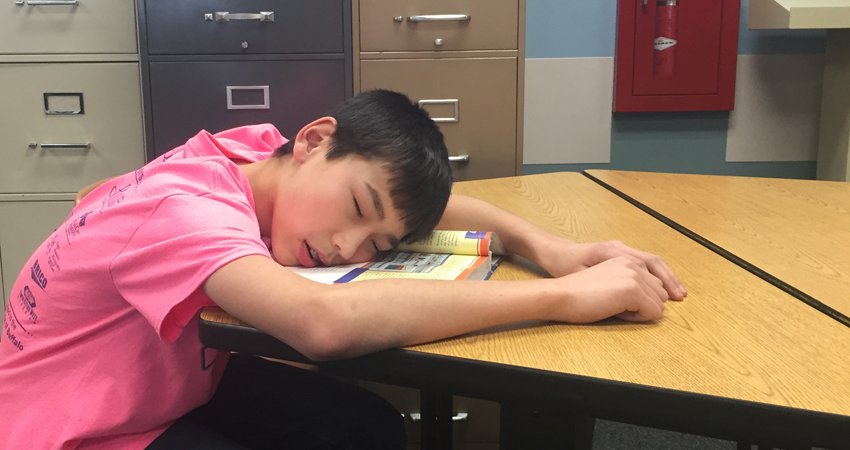
High schoolers are known for sleeping in late on the weekends and complaining about waking up early on school days. Teenagers are usually tired, even on weekends, because they don’t get enough sleep during the school week.
53% of Buffalo High School students surveyed do not get the minimum number of hours of sleep a person of their age needs. When surveying students, we found that on average students get anywhere from 5-10 hours of sleep per night.
“If you get a good sleep, then you can be more successful.” says freshman Lauren Cypress.
Students stay up late for many reasons. Sometimes it’s because of extreme amounts of homework, or saving homework until last minute, late at night. Other times, it’s just because of choice, either on technology or something else recreational.
High school students are supposed to have 8-10 hours of sleep every night, however teenagers’ changing sleeping patterns make it so that it’s natural for them to not feel tired until 11:00pm. So, is it realistic to expect students to sleep for 8-10 hours? Lots of students have homework and after school activities that take up time in their days, and cause them to stay up later.
“I know students have a lot of other things to worry about like sports after school, or working jobs.” says Chemistry teacher James Didier.
Most kids also need at least an hour to get ready in the morning. This makes it nearly impossible for them to get their minimum of 8 hours every night.
“Nobody gets ten hours of sleep, you can imagine how many students aren’t getting the recommended amount and I think it does affect their academics.” Says Didier.
Not getting the recommended hours of sleep can lead to problems at home and at school. Being tired makes it more difficult to learn. Lack of sleep can make it much harder to problem solve, comprehend, and pay attention in class. This makes it more difficult to go about your day normally, especially if you have school work.
“I don’t think learning can happen even half as well when you are completely exhausted.” says Math teacher Emily Haugh.
Situations where kids are not getting enough sleep can range from just annoying to more serious. It can get to the point where kids are falling asleep in class, which happens more commonly than you might think.
“I’ve had students that are falling asleep daily” says Haugh.
Lack of sleep can also affect your attitude and personality. It causes you to act more moody and irritable. More dangerously, being sleepy while driving can lead to car crashes.
“When you are tired, you just don’t respond to the best of your abilities in any situation.” says English teacher Sandra Goers.
Currently, our district is debating if the Buffalo-Hanover-Montrose school starting and ending times should be changed for the 2015-16 school year. This would mean that the elementary schools would start school at 7:45 and the middle school and high school would start at 8:50, opposite to the current system. There are very mixed opinions on this concerning students, parents, and staff.
“[For] the people who are trying to get the [right amount of] sleep, it will be beneficial for them, and that’s what we should base our decisions on.” says Haugh.
Some people think that moving the start time back will give the students another hour of sleep, while others say that students will just stay up later, and not take advantage of the time.
Later start time or not, there are still other ways to improve your sleep schedule. Experts suggest turning off all electronics at least 3 hours before bed. They also say to try and keep a consistent sleep schedule. This includes not sleeping in late on the weekends.
Not getting enough sleep can majorly affect your life, relationships, and attitude. A lack of sleep can hurt your health in many ways, but can be improved with the correct amount of sleep each night.





